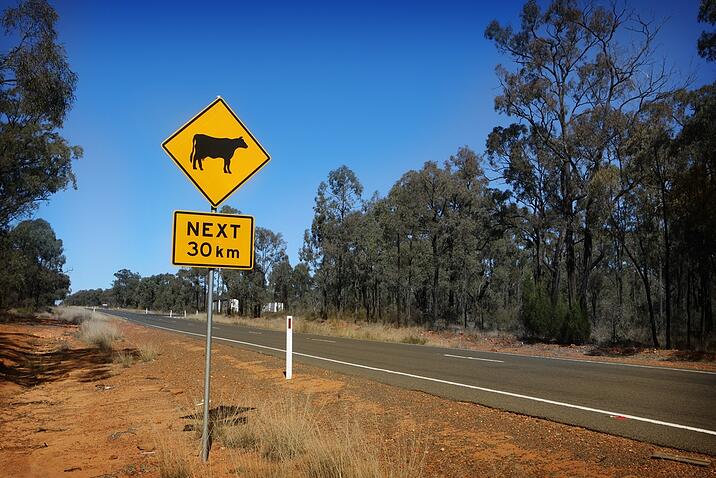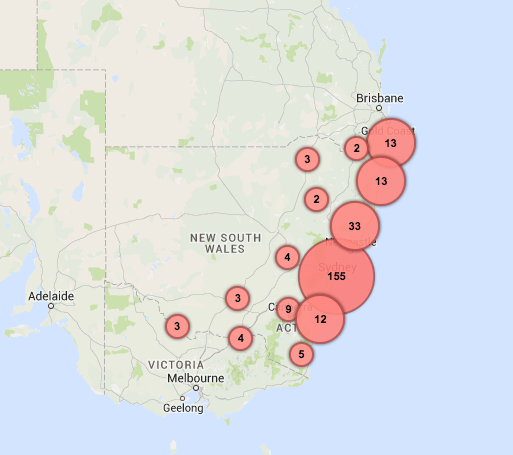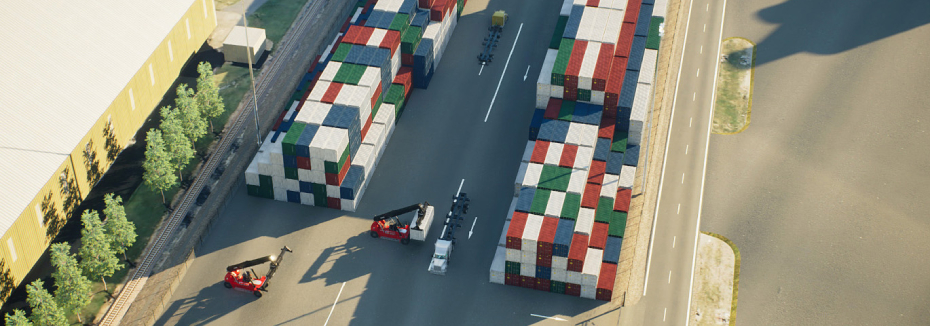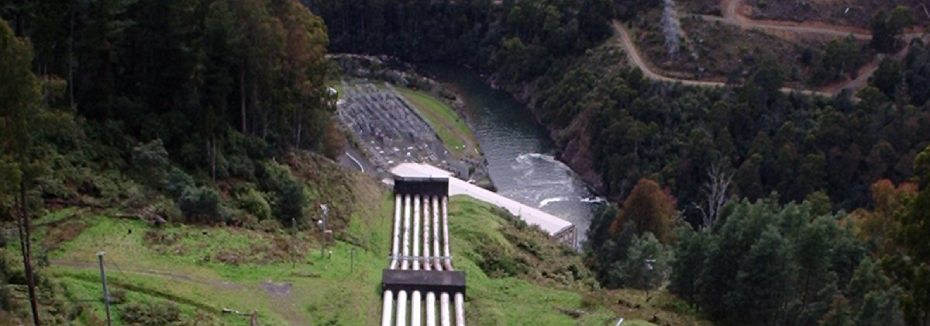Exclusive interview: Federal Government's outlook for 2016 infrastructure

PlantMiner exclusively caught up with a spokesperson for the Deputy Prime Minister and Minister for Infrastructure and Regional Development Warren Truss to discuss the infrastructure outlook for 2016. As one of the last Q&A's submitted before the announcement of Deputy Prime Minister Truss' retirement date today, we gain his thoughts on the Federal Government's optimism for future infrastructure delivery.
Q: Where is the Government focusing its energies for the future of construction in 2016?
A: In 2016, the Australian Government is focusing on building for the future, delivering the biggest infrastructure investment programme in Australia's history. The Australian Government’s investment in transport infrastructure is helping to sustain thousands of jobs, eliminate congestion in our cities, increase the economic capacity of our freight routes and improve safety for all road and rail users.
Q: What measures is the Government taking to ensure local businesses secure work during the construction phases of awarded projects? Is there a role to play for the Government to ensure that local suppliers get the same opportunities as bigger companies?A: The National Partnership Agreement on Land Transport Infrastructure Projects between the Commonwealth and States and Territories (States) includes a requirement for States to provide a Local Industry Participation Plan (LIPP) for all projects receiving Commonwealth funding of over $20 million. LIPPs can facilitate local employment in major infrastructure projects to facilitate local enterprises, for example for small and medium-sized enterprises, to build capability and prepare to tender for work in major public and private sector projects.
If States require a template for a LIPP, the Australian Government’s Australian Industry Participation Policy (AIP) should be used. The template is available at: www.industry.gov.au/aip. The objective is to encourage full, fair and reasonable opportunity for Australian industry to compete for work in major public and private projects in Australia.
Q: What are some of the projected advantages to other industries such as agriculture and small business if infrastructure projects are approved?A: Infrastructure investment boosts productivity in industry; increases Australia’s economic prosperity; and improves road and/or rail safety in both cities and regions.
For an industry like agriculture, investment in transport infrastructure brings benefits such as an improved supply chain from farm to export ports and markets, reducing costs and increasing reliability. Informed investment in productivity-boosting infrastructure supports Australian industry to be more efficient, productive and competitive.

Photo: Transport infrastructure improves supply chains from farm to export ports and markets
Q: What changes would you like to see in the infrastructure industry in 2016?
A: The government is looking to work more closely with industry. We want to make sure our approach to policy and projects optimises industry engagement and improves the value for money for Australian taxpayers.
A recent example of our commitment to industry consultation was in December last year, when we released a discussion paper on the Northern Australia Roads Programme. We are encouraging the private sector to put forward their ideas on how we can best use innovative funding and delivery models in this programme. Further evolution from a traditional purchaser-provider approach to a partnership approach is something we believe can deliver better outcomes for both industry and the public and it is something we hope industry will embrace.
We also believe that improved access to data which enables the costs of transport infrastructure and services to industry and governments to be more reliably determined, will assist us in delivering greater value for money to tax-payers.
We also want to see improvements to workplace relations in the construction industry. This is why we remain committed to legislation that will re-establish the Australian Building and Construction Commission. We know that effective workplace relations are critical to supporting high performance in the sector so that it continues contributing to national productivity.
Q: What is the role of politics in the delivery of infrastructure projects? Should Government honour all projects where federal funding has been committed (e.g East West Link contract in Victoria)?A: It is disappointing that the East West Link project is not proceeding. It was an important project to ease congestion for commuters and freight vehicles and increase productivity in Melbourne. The project would also have created much needed jobs. The cancellation of the project by the Victorian Government has also created uncertainty for the industry and potentially risks Australia’s international reputation.
The impact of politics is clear when you compare states like New South Wales, which is seeing great success in pursuing new and significant infrastructure investments, to states that are not capitalising on these types of opportunities. That said, we will continue to use our political will to deliver the infrastructure needed across the nation.

Photo: RMS 'Search For A Project' feature which highlights the planning, construction and operation of infrastructure projects in NSW.
Q: Is there any new funding scheme being considered to help deliver projects?
A: The Australian Government is seeking to take a longer term, strategic approach to its infrastructure investment. Part of this strategy includes the development of a pipeline of infrastructure projects to inform future investment decisions, which builds off Infrastructure Australia’s (IA) Australian Infrastructure Audit and the soon to be released 15-year Australian Infrastructure Plan.
Given the tight fiscal circumstances faced by all governments, we need to look at more innovative approaches to funding and financing so that critical infrastructure can continue to be delivered without damaging our long term fiscal position. Alternative approaches that we will look to consider on a project by project basis include value capture mechanisms, which help share the burden of funding projects with those businesses and households who more directly benefit from the new or improved infrastructure.
Q: What are the biggest threats to infrastructure delivery during the term of this Government?A: Firstly, I think it is important to say that we are optimistic about our capacity to deliver the infrastructure that the Australian community needs. There are plenty of success stories we could reflect on and the Australian Government remains committed to working in partnership with the private sector and state and local governments to continue building on these successes.
The Commonwealth is rolling out a record level of investment by an Australian Government with its $50 billion commitment to new and upgraded infrastructure. The projects are generally delivered by the states, so we work closely with them to ensure that the projects supported under this package are delivered as efficiently as possible and that they meet the full intent of our commitment.

Photo: Brisbane CBD Street
Q: What projects do you consider will deliver the greatest economic advantages?
A: A range of major projects are underway that will deliver both economic and social benefits to the Australian community. Some of the more significant projects include the new Western Sydney Airport, which will create up to 7,600 jobs during construction. The airport will be a major generator of economic activity, generating in the order of 60,000 jobs by 2060.
Stage 2 of WestConnex is another important project in New South Wales that will help ease congestion in Sydney. In Queensland, our ten year upgrade program on the Bruce Highway is critical to the community and the private sector in improving safety and generating employment, as is the Toowoomba Second Range Crossing. We also have a range of projects underway across north and west Australia and in Tasmania that will bring significant benefits to those regions.
We have also committed funding under dedicated programmes such as the Bridges Renewal Programme and National Stronger Regions Fund to deliver projects right across Australia. The National Stronger Regions Fund is particularly important in supporting priority infrastructure projects identified by regional communities.
In addition, the Australian Government strongly supports the use of technology solutions to address identified deficiencies in our transport networks. The use of technology generally comes at a far lower cost than construction measures and delivers strong economic benefits.
In terms of future investments, the Government undertakes robust evaluations of all new proposals seeking funding under its Infrastructure Investment Programme to determine their economic benefits. We have also delivered reforms to Infrastructure Australia to improve project selection and transparency around which projects deliver the greatest economic benefit. Infrastructure Australia is tasked with evaluating proposals, including a cost benefit analysis, where $100 million or more in Commonwealth funding is being sought. The findings of these evaluations are published so that all Australians can see the economic benefits of the nationally significant projects being considered by Government.
We are currently looking at a range of proposals from the states and territories and our view about which have the greatest economic advantages will be informed by Infrastructure Australia’s independent analysis.
If you're invested in infrastructure like we are, subscribe to Felix Project News and receive updates straight to your inbox about the latest and greatest in infrastructure news.
Author's note: All responses were submitted by a spokesperson for the Deputy Prime Minister and Minister for Infrastructure and Regional Development Warren Truss.

Recent Articles
Large-scale festival & events site in the Sunshine Coast approved for development
A new outdoor music festival and exhibition event site has been approved by the Crisafulli Government for development at Coochin Creek on the Sunshine Coast, near Caloundra.
Construction begins on new container depot at the Port of Mackay
A 1.3-hectare container depot is now under construction at the Port of Mackay in Queensland as part of the Crisafulli Government’s plan to deliver a better lifestyle through a stronger economy.
Procurement underway for Tarraleah hydropower scheme redevelopment
A major milestone has been reached in Hydro Tasmania’s plan to redevelop the iconic Tarraleah hydropower scheme with the first stage of construction tender kicking off.
Get the latest project news
- updates on Australia's pipeline of state and federal projects
- fresh contract awards from major contractors and builders
If you're looking to contact us about other matters, please contact us.




